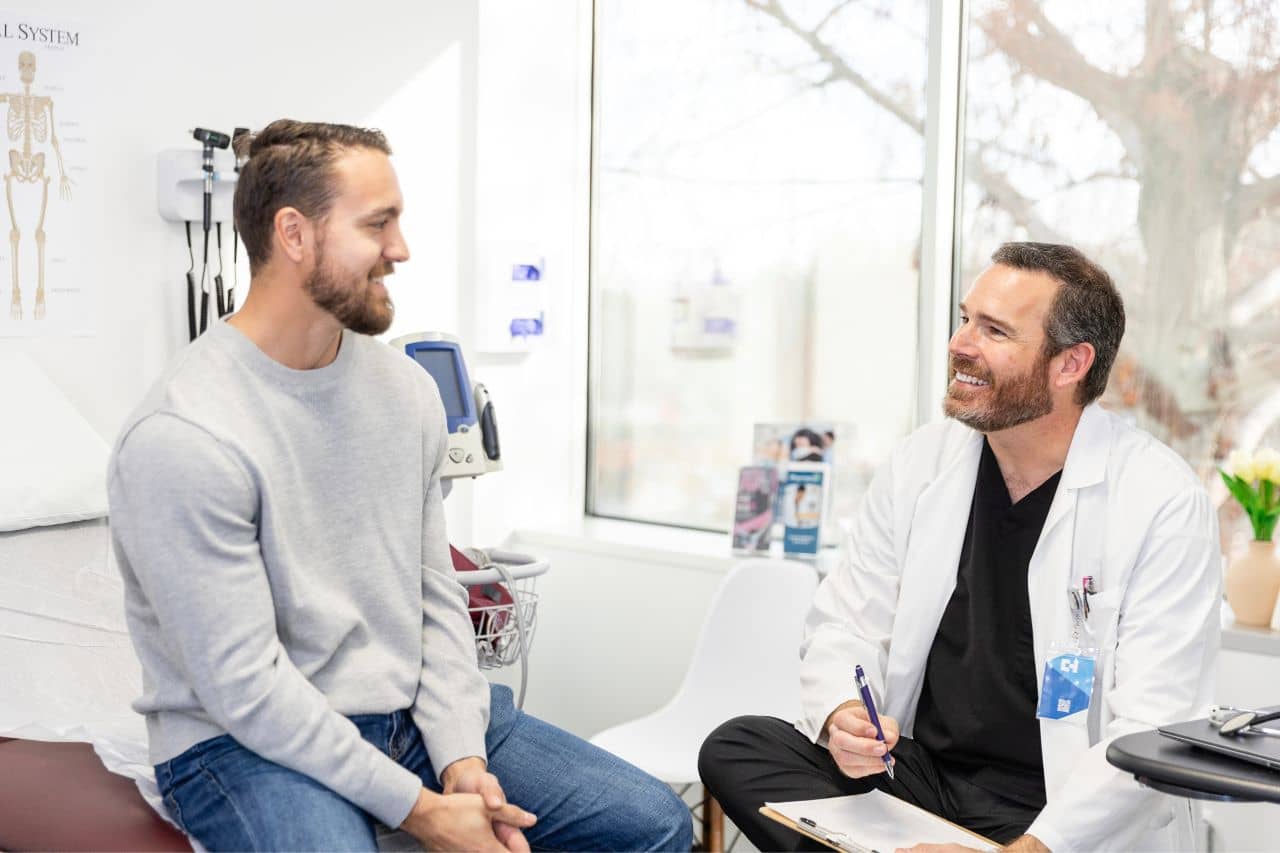The Role of Exercise During Cancer Treatment
.jpg?rev=1eedba9b32564459937d58b2762a1a9b)
It’s crucial to get plenty of rest when you’re receiving cancer treatment. However, research has also proven the value of exercise during chemotherapy or radiation therapy.
This article explains the relationship between exercise and chemotherapy or radiotherapy, lists the benefits of exercise during cancer treatment, and provides recommendations for the types of physical activity that are best for people during chemo or radiation therapy.
Benefits of Exercise During Cancer Treatment
Exercise during chemo or radiation therapy has both physical and psychological benefits.
Physical benefits
Studies on radiation/chemo and exercise are ongoing, but researchers suspect physical activity helps increase strength and stamina and reduce treatment side effects in multiple ways. First, exercise decreases inflammation and lowers insulin levels associated with certain cancers.
Working out during chemotherapy (or anytime) also causes the body to create new blood vessels, which may help more medication reach cancer tumors. In addition, physical activity boosts the immune system, enabling it to attack cancer cells more effectively. This support of immune system function is crucial since chemotherapy can weaken it.
Psychological benefits
Exercise while on chemotherapy or radiation therapy produces several psychological benefits. People who exercise during radiation/chemotherapy report reduced stress, improved mood, and better quality of life.
Of course, physical activity during cancer treatment isn’t a one-size-fits-all proposition. Exercise during radiotherapy for breast cancer in someone who is 60 years old may be much different than the regimen for a patient who is 45 and receiving chemotherapy for leukemia. Consequently, it’s crucial to talk with your care team about how to stay active during cancer treatment.
Types of Recommended Exercises for Cancer Patients
People being treated for cancer can benefit from various types of exercise.
Aerobic exercises
Aerobic exercise strengthens the heart and lungs, which can help reduce fatigue from cancer treatment. Walking is an excellent way to get this type of workout.
Strength training
Inactivity during cancer treatment can lead to muscle loss. Strength or resistance training can help prevent that loss, reduce fatigue, improve balance, and fight osteoporosis (weakening of the bones).
Flexibility exercises
Stretching and flexibility exercises improve blood flow and the delivery of oxygen and nutrients to muscles. They also help improve your range of motion, which is crucial since some cancer treatments cause muscle tightness.
Balance exercises
Cancer treatments can adversely affect balance. These exercises can help offset that loss and reduce the risk of falls and injuries.
Creating a Safe and Effective Exercise Plan
Working out while on chemotherapy or radiation therapy can be very beneficial. However, working with your care team to develop an effective and safe exercise program is essential. They base their recommendations on your fitness level, treatment phase, and overall health.
It’s important to view your exercise plan as an evolving strategy and modify it as your needs and capabilities change.
Overcoming Challenges to Exercise During Treatment
As important as it is to be physically active during cancer treatment, exercising has its challenges. Chemotherapy and radiation therapy can cause fatigue, low motivation, nausea, and other side effects. To overcome these obstacles, you can do the following:
- Set small initial goals and increase your activity levels if/when you can.
- Find fun ways to stay active.
- Exercise with a friend.
- Remember that temporary deviations from your exercise plan (due to excessive fatigue, for example) don’t mean you must stop exercising entirely. You can resume your workouts when you’re ready.
Importance of Exercise During Cancer Treatment
If you’re receiving radiation or chemotherapy, exercise can improve your treatment and support better physical and psychological health throughout your journey. Exercise during radiation or chemotherapy can and should be tailored to your needs and abilities, and your care team can provide guidance.
To better understand your cancer risk, complete your health assessment now.


.jpg?rev=3b9e6c513f4444b09afd107f17666371)
